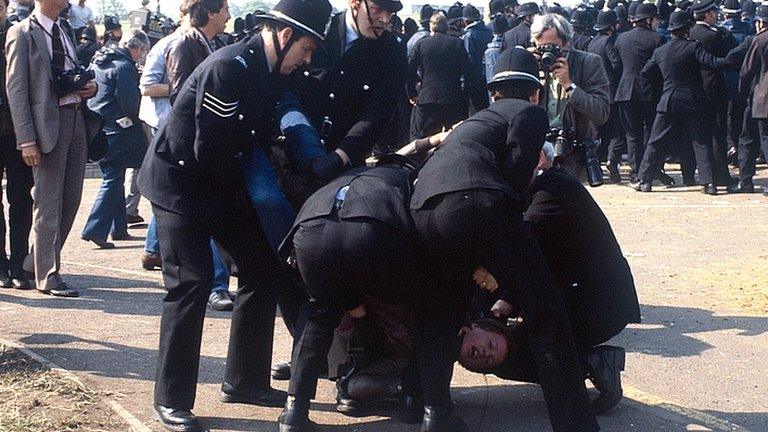Battle of Orgreave ex-officer calls for police conduct inquiry
- Published
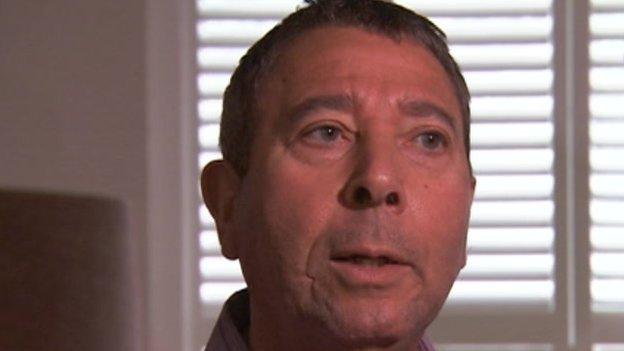
Tony Munday says he thinks an investigation into policing and court cases around the Orgreave confrontation would benefit miners involved at the time
An ex-policeman who was on duty during one of the most violent clashes of the 1984 miners' strike wants an inquiry into how police handled its aftermath.
Tony Munday says he was told by senior officers what to write in a statement after clashes on 18 June 1984, known as the Battle of Orgreave.
Fifteen miners, who worked at Orgreave, went on trial but the case failed because evidence was deemed unreliable.
Mr Munday has told the BBC miners now should "have justice seen to be done".
The South Yorkshire force referred itself to the watchdog, the Independent Police Complaints Commission (IPCC) after a BBC documentary claimed officers may have colluded in writing court statements.
That followed a BBC Inside Out programme, which clamed its officers were told what to write in their statements, following clashes at Orgreave.
The IPCC said it understood the frustrations in the time it was taking to reach a decision on whether such an inquiry should take place.
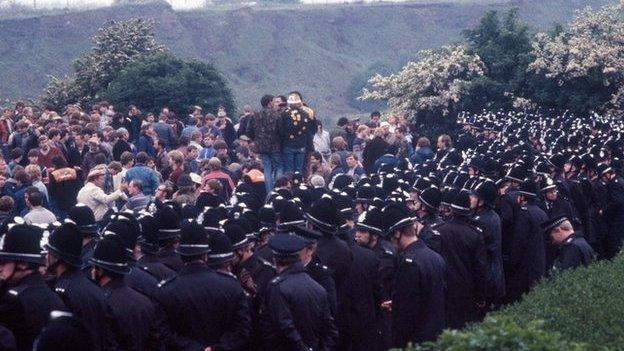
Thousands of miners and police clashed at the Orgreave coking site in South Yorkshire
Mr Scargill obtained a "hit list" of mines the Thatcher government was planning to close.
The Home Office said it would be inappropriate to comment while the (IPCC) investigation is ongoing.
Officers were drafted in to police the pickets lines from forces across the country.
Now Mr Munday, who served with the Hertfordshire force, has said he was told what to put in his statement "by a senior South Yorkshire detective" after he arrested a miner during the Orgreave confrontation.
"I've never before or since, while I've been a police officer, been involved where effectively chunks of a statement were dictated. They weren't my words," he said.
He agreed an inquiry should look at police conduct during the Orgreave clashes and their aftermath, as well as the subsequent trial.
"Orgreave is symbolic, it's symbolic of the whole miners' strike," he said.
"So I think it's appropriate particularly I think to repair trust, confidence and if there are issues of accountability wherever they are then that ought to be dealt with because policing needs to be appropriately embedded.
"If there's this demand from miners, well, they're citizens and they are entitled to have justice seen to be done.
"If for no other reason than to help them get some closure then, absolutely, I'd be very supportive of that [inquiry]."
Michael Mansfield, QC, who represented some of the miners at court after their 1984 arrests said he wanted the IPCC to reach a decision on an inquiry.
He said: "My concern is all they're doing is looking to see if there's a case to be referred for a full investigation.
"That does not take from 2010 to now - nothing."
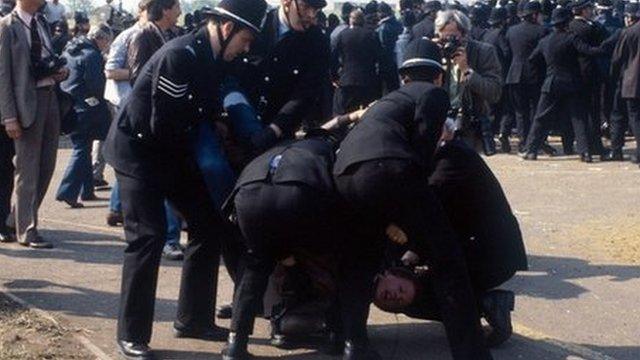
Thousands of striking miners clashed with police on the picket lines at Orgreave
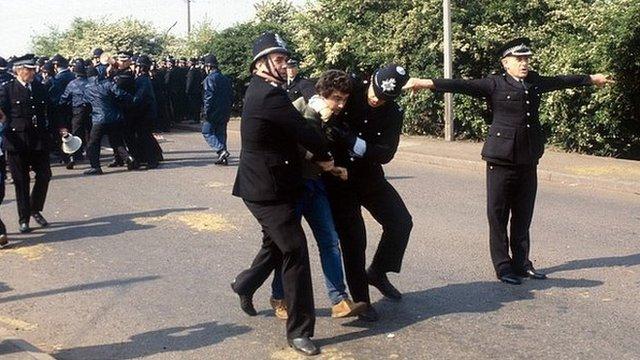
More than 90 people were arrested and both miners and police officers were injured in the clashes
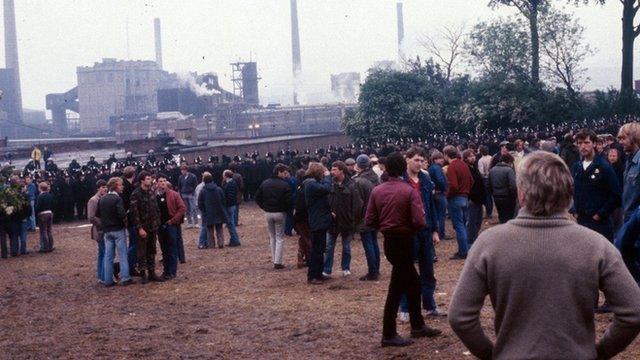
The police were drafted in from forces across the country to Orgreave and other sites in the dispute
- Published22 October 2012
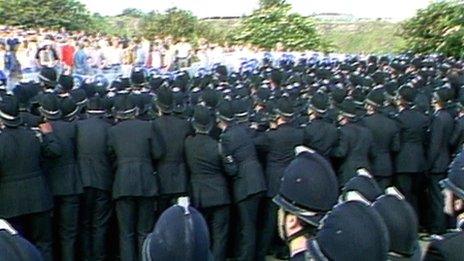
- Published13 September 2012
